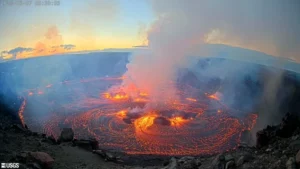The trial of Scot Peterson, the former school resource officer implicated in the 2018 Parkland school shooting, has begun, and it is stirring a nationwide conversation about the responsibilities of school safety officers and the fairness of legal procedures. The defense team argues that the investigation has been biased, adding another layer of complexity to the already emotionally charged case.
Back on February 14, 2018, a horrifying incident unfolded at Marjory Stoneman Douglas High School in Parkland, Florida. A gunman opened fire on the school premises, resulting in 17 casualties and 17 injuries. Scot Peterson, the school resource officer on duty, allegedly failed to intervene and stayed outside the building during the shooting, sparking criticism and debate over his actions.
Fast forward to today, and Peterson is now on trial, facing charges including negligence and child neglect. The focal point of the defense argument is that the investigation leading up to the trial was ‘biased.’ This contention raises critical questions about the objectivity and fairness of the investigative and judicial processes, which we will delve into in this blog post.
School resource officers (SROs) play an essential role in ensuring school safety. They are not just uniformed guards but also counselors and educators who aim to establish a secure and conducive learning environment. Peterson, with his 30 years of service, was an experienced SRO. His inaction during the tragic Parkland school shooting has therefore led to significant scrutiny of the role and responsibilities of school resource officers.
The allegations against Peterson suggest he failed to fulfill his duty as an SRO during the crisis. However, the defense argues that the investigation process was biased, adding a convoluted twist to the trial. They contend that Peterson was unfairly singled out for criticism and criminal charges due to the intense public outcry and media attention that followed the tragedy. The defense alleges that this pressure could have unduly influenced investigators, potentially compromising the fairness of the process.
This case is precedent-setting. The outcome will impact not only how SROs are trained and deployed but also how they are held accountable in the aftermath of school violence incidents. Moreover, it will serve as a litmus test for the impartiality of legal investigations amid heightened public pressure and media scrutiny.












